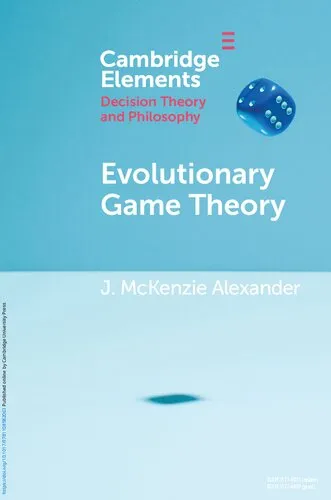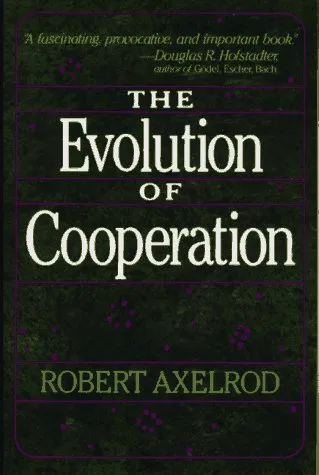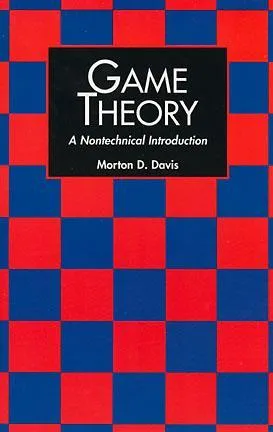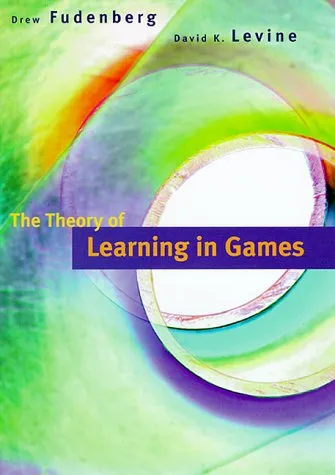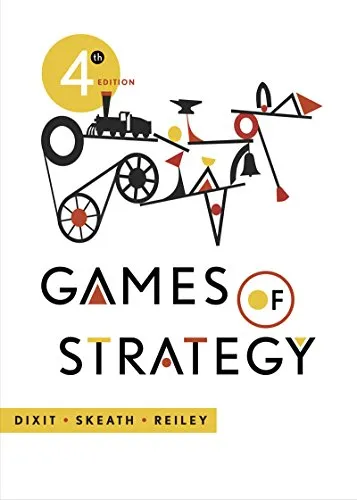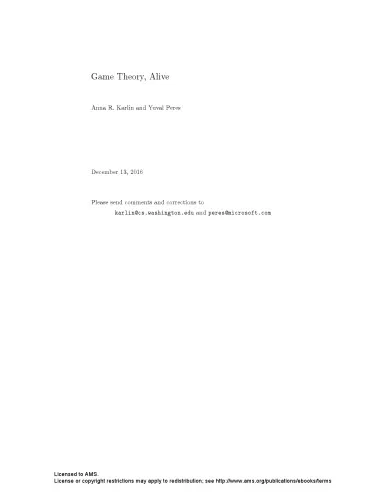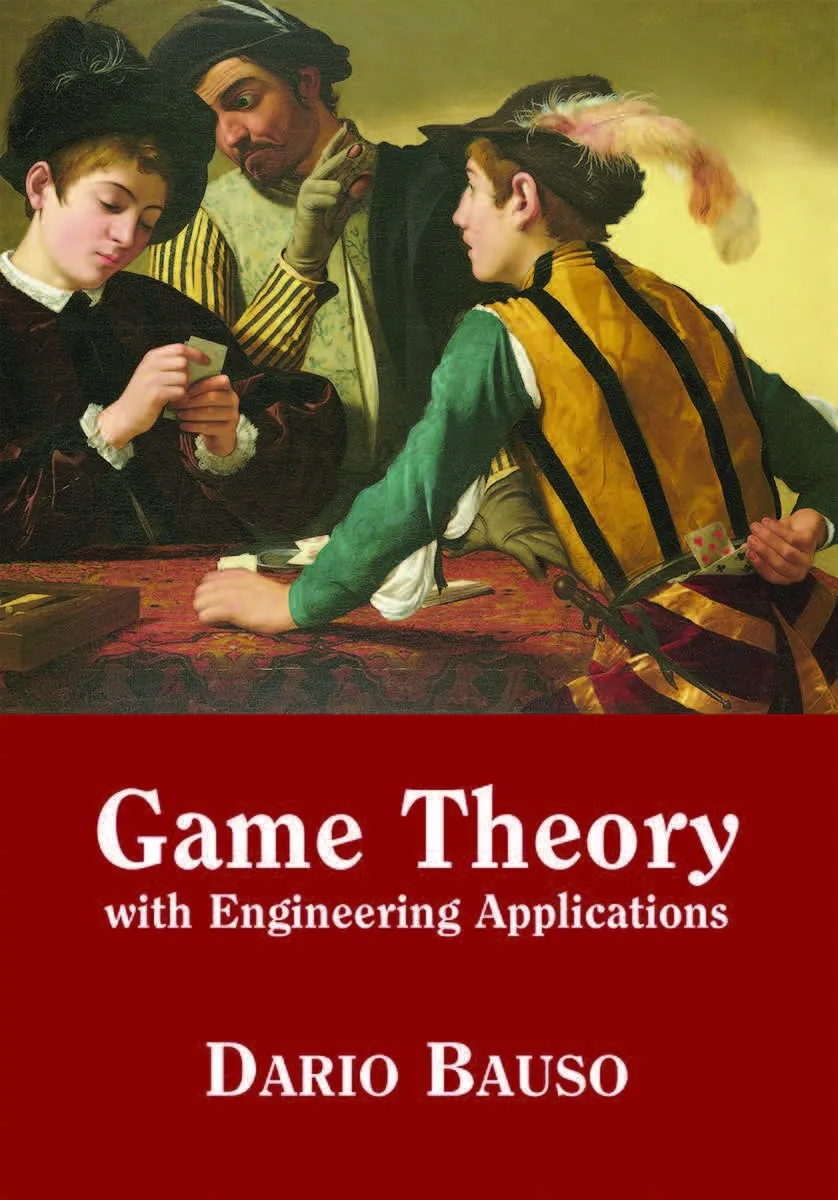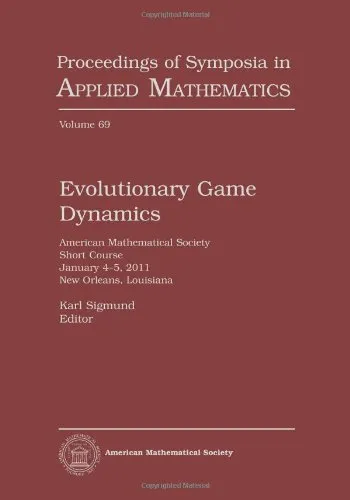Evolutionary Game Theory
4.0
Reviews from our users

You Can Ask your questions from this book's AI after Login
Each download or ask from book AI costs 2 points. To earn more free points, please visit the Points Guide Page and complete some valuable actions.Related Refrences:
Introduction to "Evolutionary Game Theory"
"Evolutionary Game Theory" is a groundbreaking exploration of the fascinating intersection between mathematical game theory, evolutionary biology, and social behavior. Written with rigor and clarity, this book serves as an essential guide for anyone seeking to understand how strategic interactions evolve and influence decision-making in complex systems.
Through its precise articulation of models and critical analysis, the book examines how evolutionary dynamics affect populations, individuals, and their decision-making processes. More than a theoretical exercise, it shows practical applications in economics, biology, philosophy, and beyond. This introduction provides an overview of the book, its essential takeaways, memorable insights, and why it’s significant in today's intellectual landscape.
Detailed Summary of the Book
"Evolutionary Game Theory" works as both an introduction to the subject for newcomers and an advanced exploration for seasoned readers, delving into the foundational ideas of classical game theory and extending those concepts into evolutionary settings. The book illustrates how strategies compete, adapt, and stabilize over time, painting a vivid picture of survival and cooperation dynamics.
The content is divided into logical sections, each building on the last. It begins by discussing the classical roots of game theory, pioneered by thinkers like John Nash, and extends them through models such as the replicator dynamics and evolutionary stable strategies. These pivotal concepts are explained using biological models like predator-prey systems and conflicts between species, demonstrating how the principles of game theory map onto natural systems.
From there, the book transitions into applications that include human behavior, social norms, and economic systems—highlighting how the evolutionary perspective sheds light on trust, cooperation, and competition in human and non-human populations. Readers will also find discussions of more advanced topics, such as multi-agent dynamics, kin selection, and cultural evolution, each presented with mathematical rigor and practical examples.
"Evolutionary Game Theory" balances its discussion of theoretical frameworks with real-world applications, making it invaluable for interdisciplinary researchers and students across economics, biology, and social sciences.
Key Takeaways
- Evolutionary dynamics provide richer insights than classical game theory alone, as they incorporate temporal and population-scale changes to strategies.
- The concept of the "Evolutionary Stable Strategy" (ESS) is central to understanding how individuals adapt and stabilize their behavior over generations.
- Game theory extends far beyond games in the colloquial sense; it applies to biological systems, economics, cultural evolution, and more.
- Cooperation, a seemingly contradictory phenomenon to competition, can emerge naturally in evolutionary systems under the right conditions.
- This field combines rigorous mathematics with an intuitive understanding of natural systems, making it accessible and innovative in many disciplines.
Famous Quotes from the Book
"Strategy is not just about winning at any cost; it is about persistence in the face of competition, adaptation to a changing environment, and the eventual stability of one's approach."
"The remarkable thing about evolutionary game theory is its ability to illuminate why individuals cooperate or compete in the absence of emotion, intention, or foresight."
"Evolutionary systems demonstrate that survival and success are not necessarily about being the strongest or the fastest, but about the ability to adapt one's strategies over time."
Why This Book Matters
The relevance of "Evolutionary Game Theory" transcends traditional academic boundaries. As the world grows increasingly interconnected and complex, understanding the dynamics that govern strategic interactions becomes more crucial than ever. This book provides the tools to understand and predict behaviors, whether in competitive markets, ecosystems, or even in interpersonal relationships.
The interdisciplinary approach also underscores the breadth of its applications—from biology to economics, from sociology to artificial intelligence. By presenting insights into how cooperation emerges and why some strategies are more successful than others, the book equips readers to better navigate and influence the systems they are a part of.
Furthermore, it fosters a deeper appreciation for the role of adaptability and evolution in shaping the decisions of individuals and populations. This perspective is not only intellectually satisfying but also practically empowering, offering frameworks for better decision-making and a more profound understanding of the world.
Free Direct Download
You Can Download this book after Login
Accessing books through legal platforms and public libraries not only supports the rights of authors and publishers but also contributes to the sustainability of reading culture. Before downloading, please take a moment to consider these options.
Find this book on other platforms:
WorldCat helps you find books in libraries worldwide.
See ratings, reviews, and discussions on Goodreads.
Find and buy rare or used books on AbeBooks.
1443
بازدید4.0
امتیاز0
نظر98%
رضایتReviews:
4.0
Based on 0 users review
Questions & Answers
Ask questions about this book or help others by answering
No questions yet. Be the first to ask!
